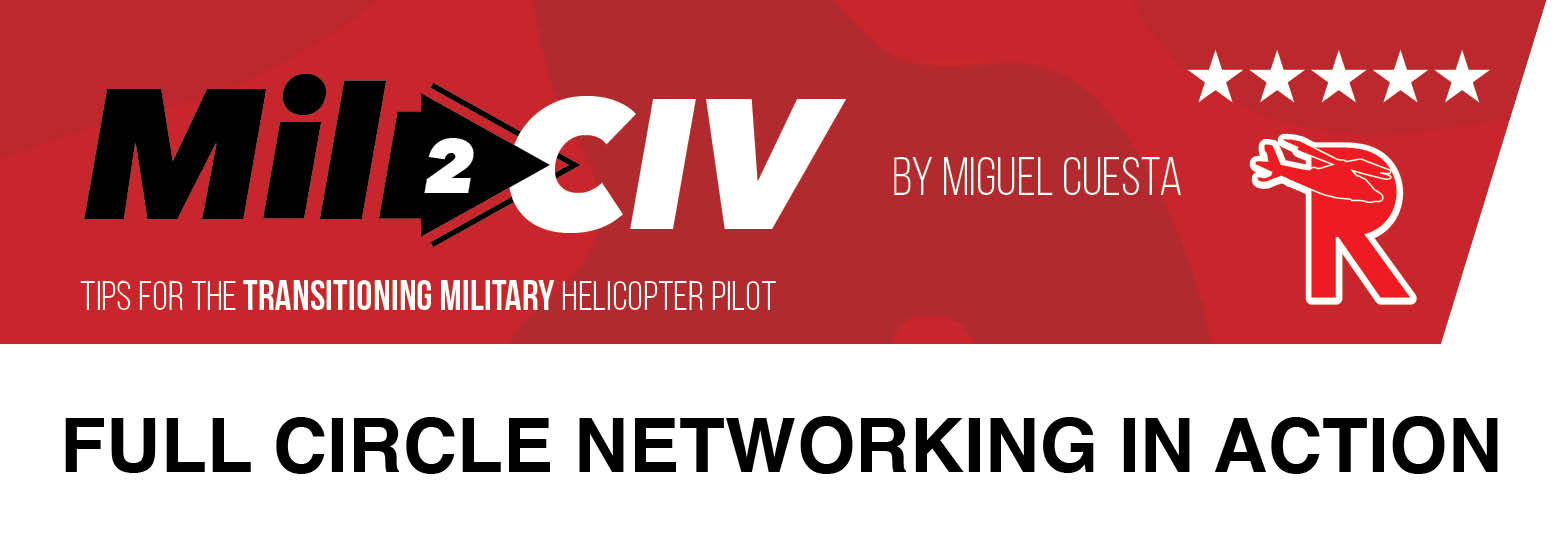|
Mar
28
2025
|
|
Posted 324 days ago ago by Admin
|
|

By Miguel Cuesta
In the Jan/Feb 2024 issue, I wrote about networking and the power of military camaraderie and how our service bonds extend beyond active duty. I spoke about how veterans have an unmatched ability to support one another, both professionally and personally. At the time I understood this in theory as I had seen it in action and believed in its value. But recently, I found myself on the other side of that equation.
I was laid off.
Suddenly, the very networking strength I had once written about became not just a concept, but a necessity. And what I’ve experienced since has only reinforced what I already knew: The military network is one of the most powerful career assets a veteran can have.
Camaraderie
One of the things that makes the military special is the deep sense of connection and shared experience among those who serve. No matter the branch, no matter the MOS, we’ve all been through the grind. That creates a level of trust that’s hard to find elsewhere.
This bond doesn’t just disappear when the uniform comes off but carries over into the professional world. Veterans naturally look out for one another, whether it’s through referrals, mentorship, or just a well-timed piece of advice. I’ve always believed in this, but as I suddenly found myself searching for a new role, I witnessed it firsthand.
Activating the Network
Like many others starting the search or facing job loss, my first instinct was to update my resume, refresh my LinkedIn, and start sending out applications. But quickly, I realized something: The most valuable opportunities don’t always come from job boards—they come from people.
So, I started reaching out.I reconnected with former colleagues, reached out to veteran groups and strangers that held similar roles in which I was interested. I re-engaged with old contacts, and even cold-messaged fellow veterans in my industry. What surprised me most wasn’t just the willingness of people to help—it was how eager they were to do so.
-
Several former military peers connected me with a hiring manager at their company.
-
Another put me in touch with a recruiter who specializes in veteran placements.
-
Several peers requested my resume so they could pass it along.
Every step of the way, the military connection was the common denominator.
Lessons Learned
This experience has reinforced some key lessons:
-
Your network is an asset—use it. Too often, we assume we must go at it alone or that asking for help is a sign of weakness. People want to help, but they can’t if they don’t know you need it.
-
Build your network before you need it. I am fortunate that my past relationships have been strong enough to lean on when needed. But this experience reminded me that networking isn’t just something you do when job searching—it should be an ongoing effort.
-
Veterans look out for each other. There’s an unspoken bond that makes us more willing to open doors for each other. If you’re a veteran, don’t hesitate to tap into that community.
If you’re a veteran reading this, know that you’re not alone. Whether you’re transitioning out of the military, facing a layoff, or simply looking for career growth, your network is one of your greatest assets. Reach out. Engage. Stay connected. If there’s one thing I’ve learned, it’s that this community always answers the call.
Miguel Cuesta transitioned into the civilian sector in 2010 after serving as an MH-47 Flight Engineer in the Army. With experience in both business and captain roles within the utility industry, he is actively seeking his next opportunity.
READ MORE ROTOR PRO: https://justhelicopters.com/Magazine
WATCH ROTOR PRO YOUTUBE CHANNEL: https://buff.ly/3Md0T3y
You can also find us on
Instagram - https://www.instagram.com/rotorpro1
Facebook - https://www.facebook.com/rotorpro1
Twitter - https://twitter.com/justhelicopters
LinkedIn - https://www.linkedin.com/company/rotorpro1